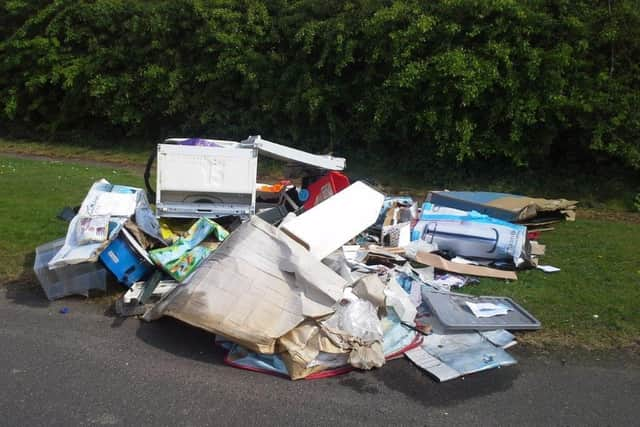Covid-19 hampers Doncaster Council's fly-tipping fight, reycling rates and grass cutting
and live on Freeview channel 276
Reports seen by councillors show only 59 per cent of fly-tipping calls were cleared within the seven-day target period. The council aims to clear 85 per cent of incidents reported in a week period.
Bosses have said Covid-19 has affected street fly-tipping clearing as staff from across many departments were moved into other areas to help with the immediate relief for residents as a result of the pandemic.
Advertisement
Hide AdAdvertisement
Hide AdThe lockdown period earlier in the year has also resulted in more household waste with people having to stay at home for long periods of time.


Recycling rates have also taken a hit with reports showing only 39 per cent of waste was recycled against a target of 50 per cent.
Bosses said there was an increase in waste collected from Christmas and New Year and changes in the way the council dispose of wood at recycling centres.
Because of the quality of the material, the wood now goes to energy recovery not recycling, which has said to have had an impact on the performance.
Advertisement
Hide AdAdvertisement
Hide AdReports also show that scheduled grass cutting programmes were not delivered as originally planned.
Once work did resume, the cuts ‘took longer than usual’ due to much longer grass and wet weather.
Parks were prioritised to allow people to exercise during lockdown and the reduced grass cutting has allowed the service to progress with its ‘naturalising initiatives’ in line with the climate and biodiversity emergency announced by the Mayor last September.
Sennette Wroot, senior policy and insight manager at DMBC, said: “There have been no land or highways proactive cleanliness inspections or remedial works due to staffing resources being focussed towards tackling the Covid-19 emergency. Clearance of fly-tipping has been concentrated on the most affected areas, and those presented a health risk.
Advertisement
Hide AdAdvertisement
Hide Ad“As people have spent more time at home during lockdown, more household waste has been generated; we have seen a significant increase in the amount of waste that is illegally dumped, particularly within the urban centre alleys.
“This increase, together with reduced staffing capacity, has meant performance against the target has suffered.”